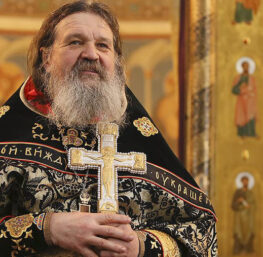USA Today Richard W. Garnett 4/16/2006
Religious leaders have long tried to sway their congregants to take sides in political battles. That might offend some, but believers, not the state, should decide when faithful activism crosses the line, says a Notre Dame law professor.
Does politics have a place in the pulpit? Should places of worship be homes for engaged and unsettling activism — or tranquil havens, sealed off from the rough-and-tumble of today’s bitter partisan debates?
These questions are both cutting-edge and perennial. Just a few weeks ago, the Roman Catholic archbishop of Los Angeles proclaimed that the duty to care for vulnerable immigrants might trump the obligation to comply with restrictive immigration laws. Earlier this year — and again last week — dozens of ministers in Ohio complained to the IRS about two prominent evangelical pastors they say crossed the line between tax-exempt religious activities and partisan political campaigning. And the Sunday before the 2004 election, the pastor of a liberal congregation in Pasadena, Calif., raised eyebrows by delivering a hard-hitting anti-war sermon that criticized President Bush sharply and directly.
Of course, none of this is new.
. . . more




The Constitution prohibits the government from directly censoring churches because that would be a violation of the First Amendment. Instead, the IRS is used to silence churches (on a very selective basis) by threatening their tax exempt status.
It would be best if churches all over the U.S. simply renounced this status, and then carried out their business. Who really gives to a church for the tax benefits? Not many people do who wouldn’t give regardless of the tax implications.
The tax code is used to silence churches, which are the primary place in which people gather since the town square turned into a shopping mall and soap boxes were traded in for TV commercials. If the churches are muffled, then we are effectively rendering the average voter completely remote from all political participation.
Time for this to end, whether the churches are liberal or conservative is not the issue. The fact that the government is using the tax code to stifle freedom of speech is that issue.
Note 2, Tax Exemption is Considered a Form of Government Support
I consider tax exempt status to be a form of government/public support for the activity which is tax exempt. I don’t want to excuse political actors from the duty of paying taxes on their activities. I don’t want to support political actors in a general, undifferentiated way through tax exemption.
I agree that Churhces should give up their tax exempt status but none seem to be willing to do so.
The biggest issue in giving up the tax exempt status is not the deduction for donations, but property tax on the buildings and real estate. That would hit some congregations quite hard.
I’m not sure what the concern is here. It seems to me that the religious right has done quite well even under the current restrictions. It would be virtually impossible for an atheist to be elected to anything, and fundamentalist and evangelical politicians have a large influence in Congress. We have an evangelical president. The old joke punch line used to be “is the Pope Catholic,” but now it’s “is the Supreme Court Catholic.” Fundamentalist and evangelical politicians dominate many state legislatures. Christian broadcasting fills the air; where I live there are no fewer than four protestant FM stations playing Jesus music and sermons, and one Catholic station. There are entire Christian TV networks, publishing houses, foundations, think tanks, etc. Christian groups now get federal money to pay for their social service programs.
But all of that is not enough. They want more power, more control, a bigger voice. The tax exemption seems to me like a very nice thing, and whatever restrictions on political speech that come with it seem minimal to me. But for some reason this is seen as a big issue.
As Gary Wills wrote in the NY Times last week, exploiting Christ for partisan political ends is blasphemy.
http://economistsview.typepad.com/economistsview/2006/04/should_democrat.html
Michael has hit the biggest issue why churches cannot afford to give up tax exemption. The minute that it’s gone local governments will place huge property tax burdens on churches that many would be forced to sell.